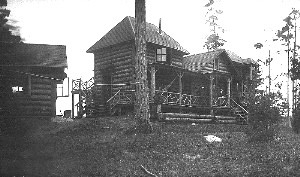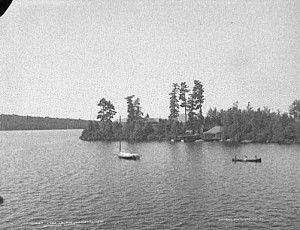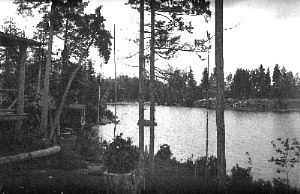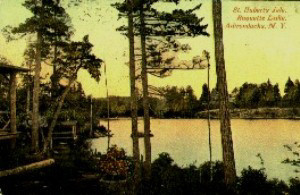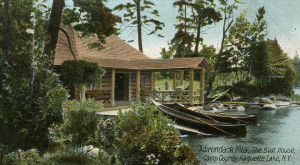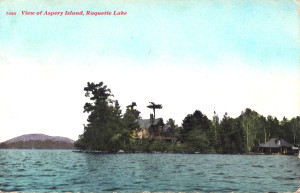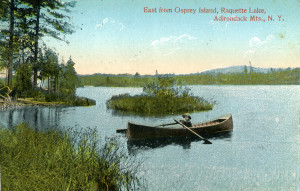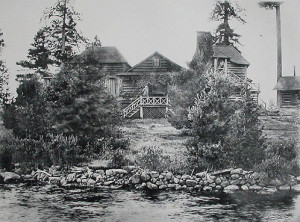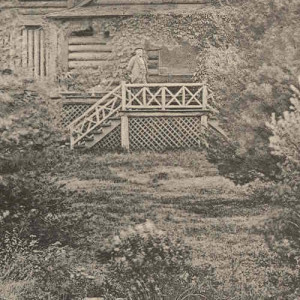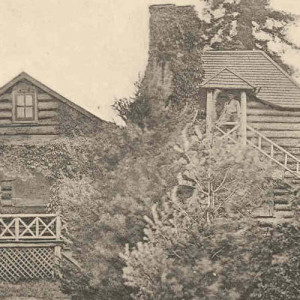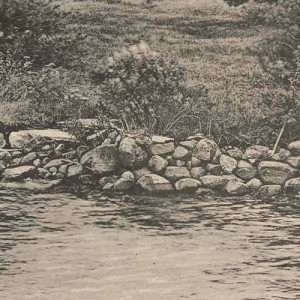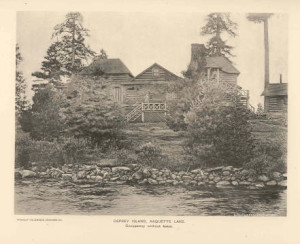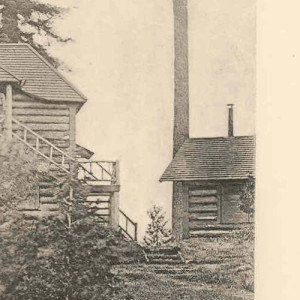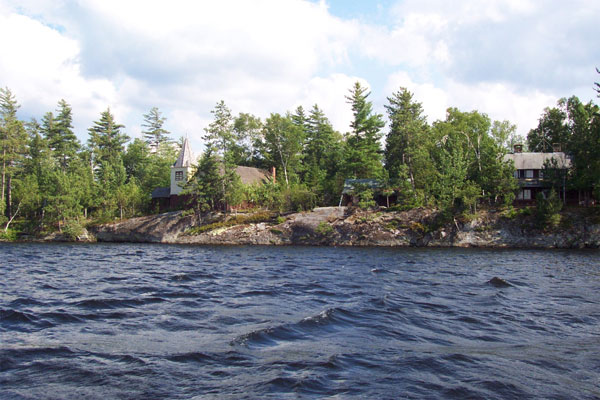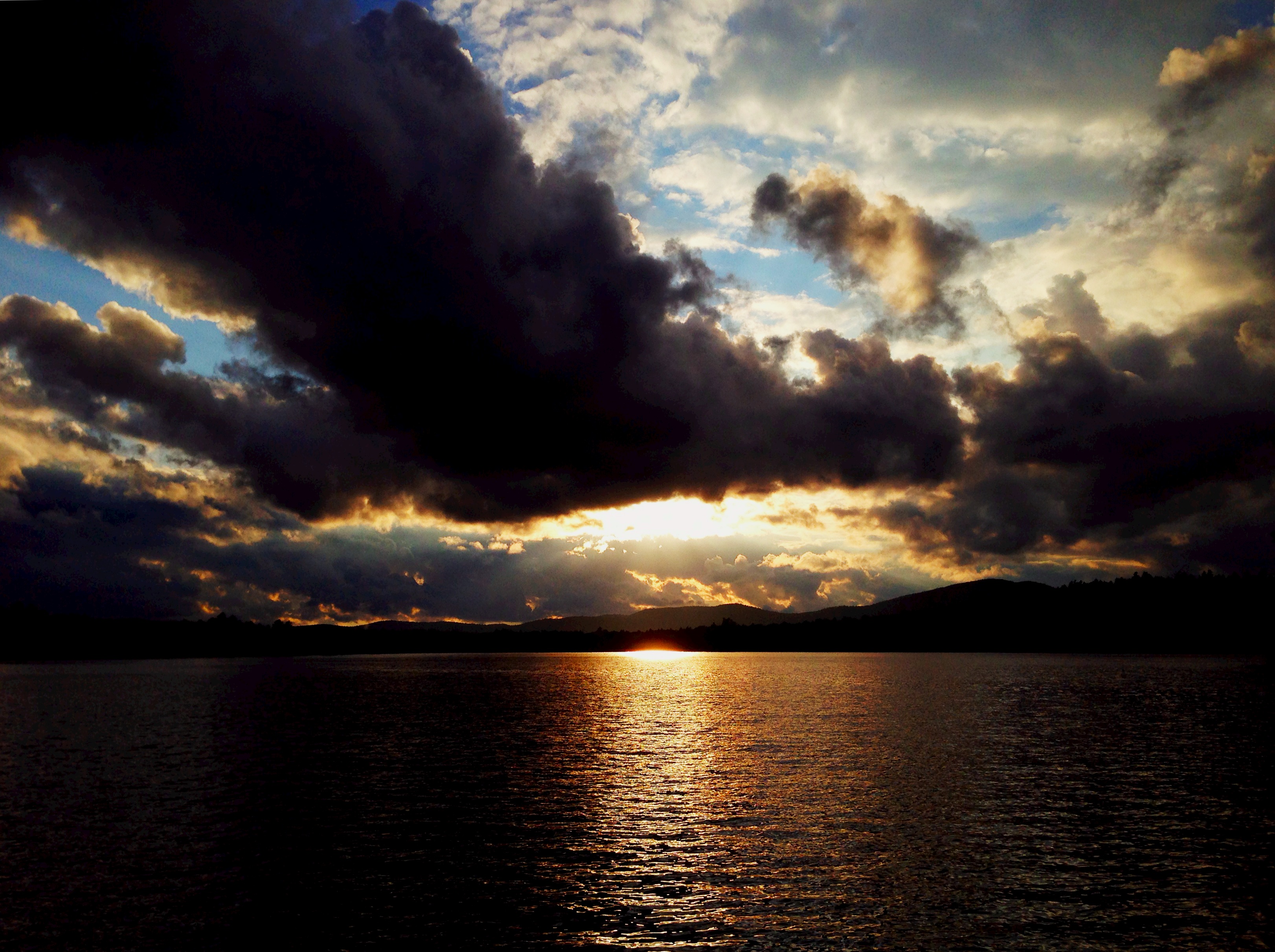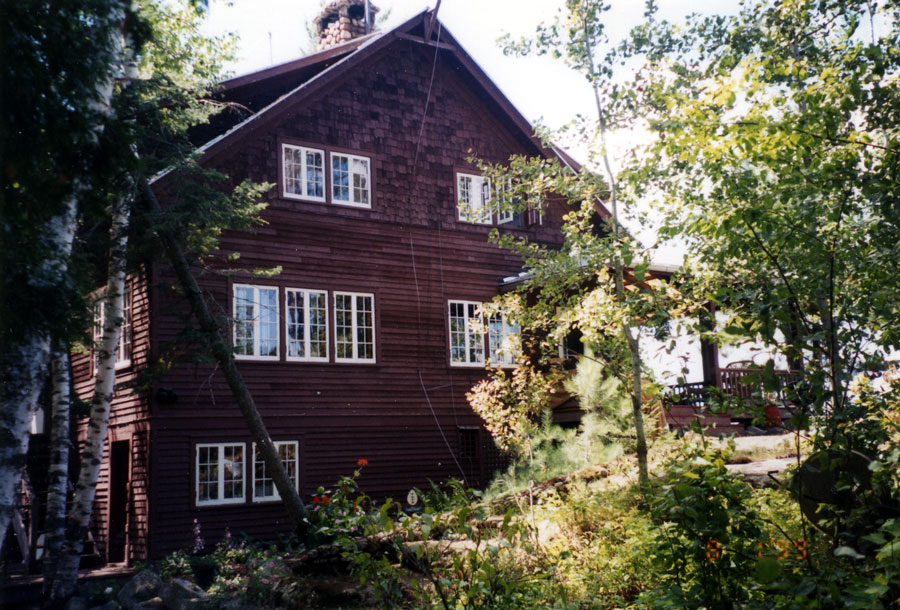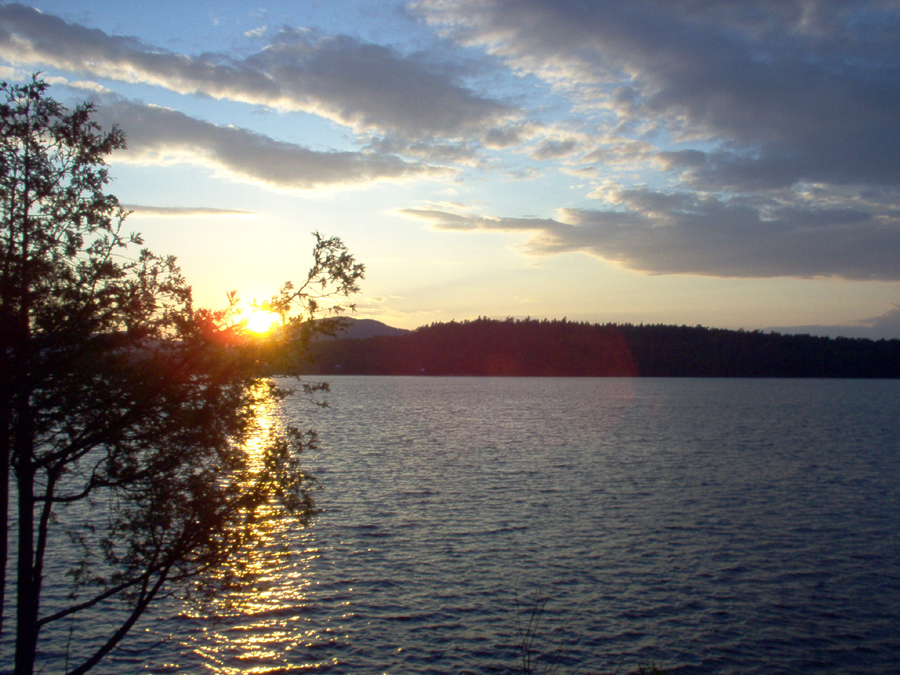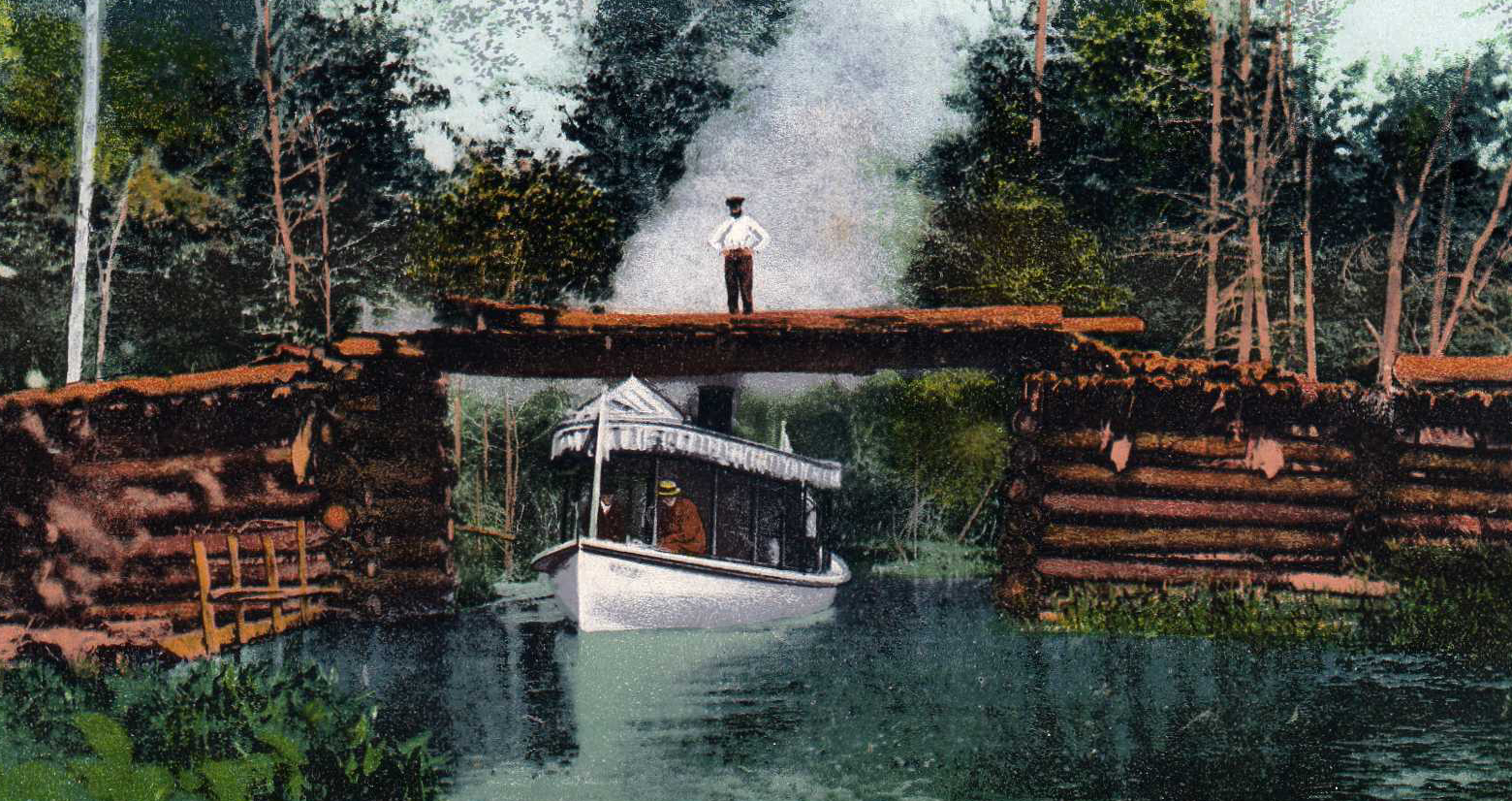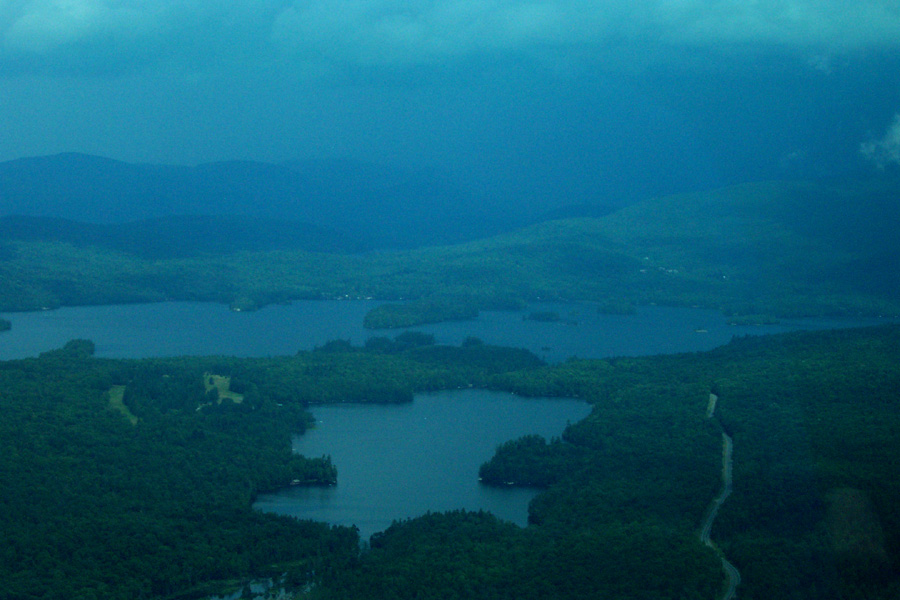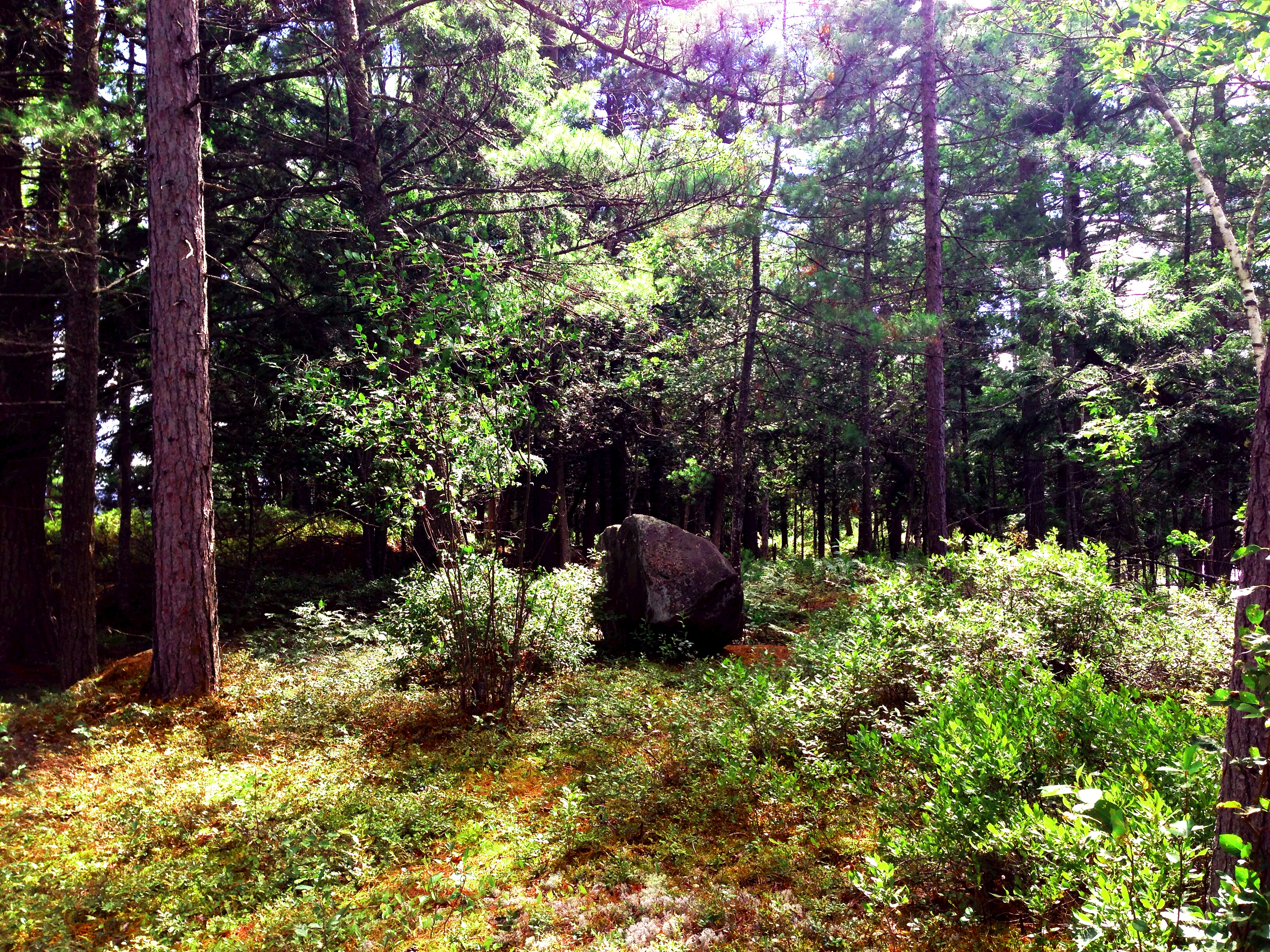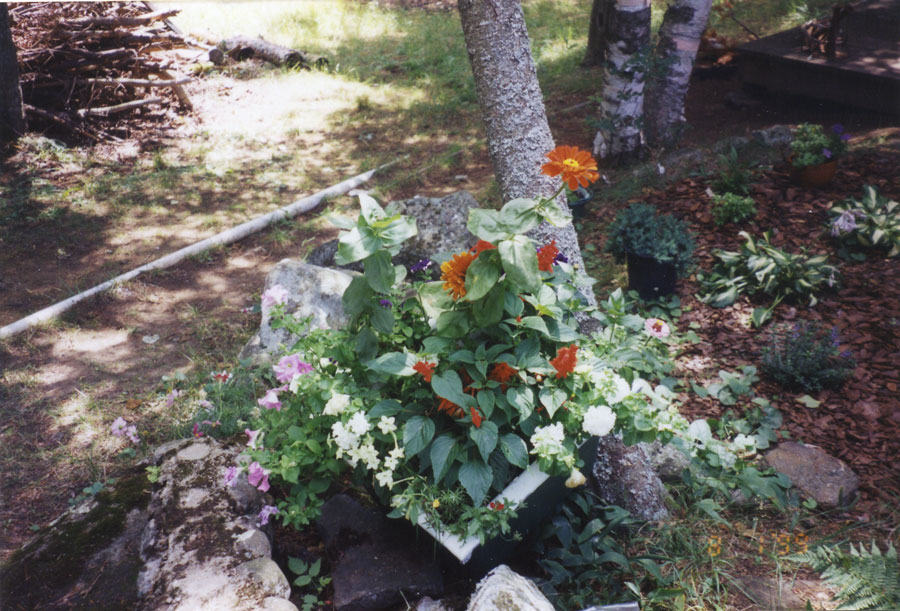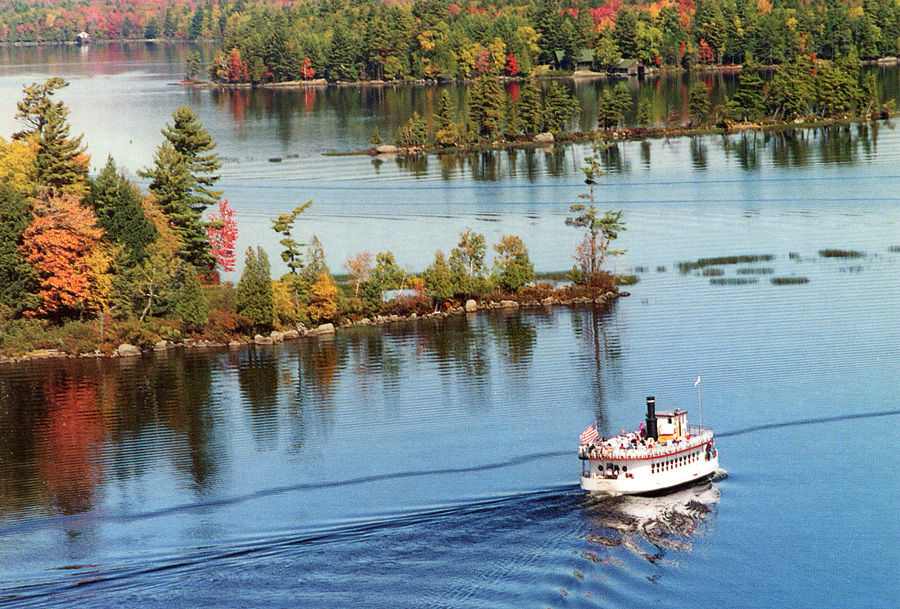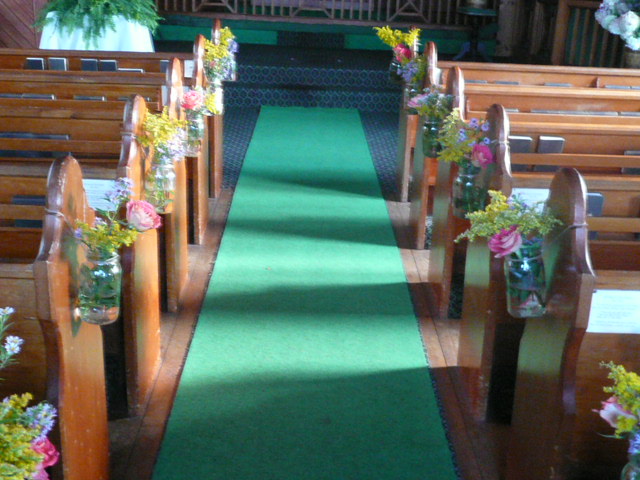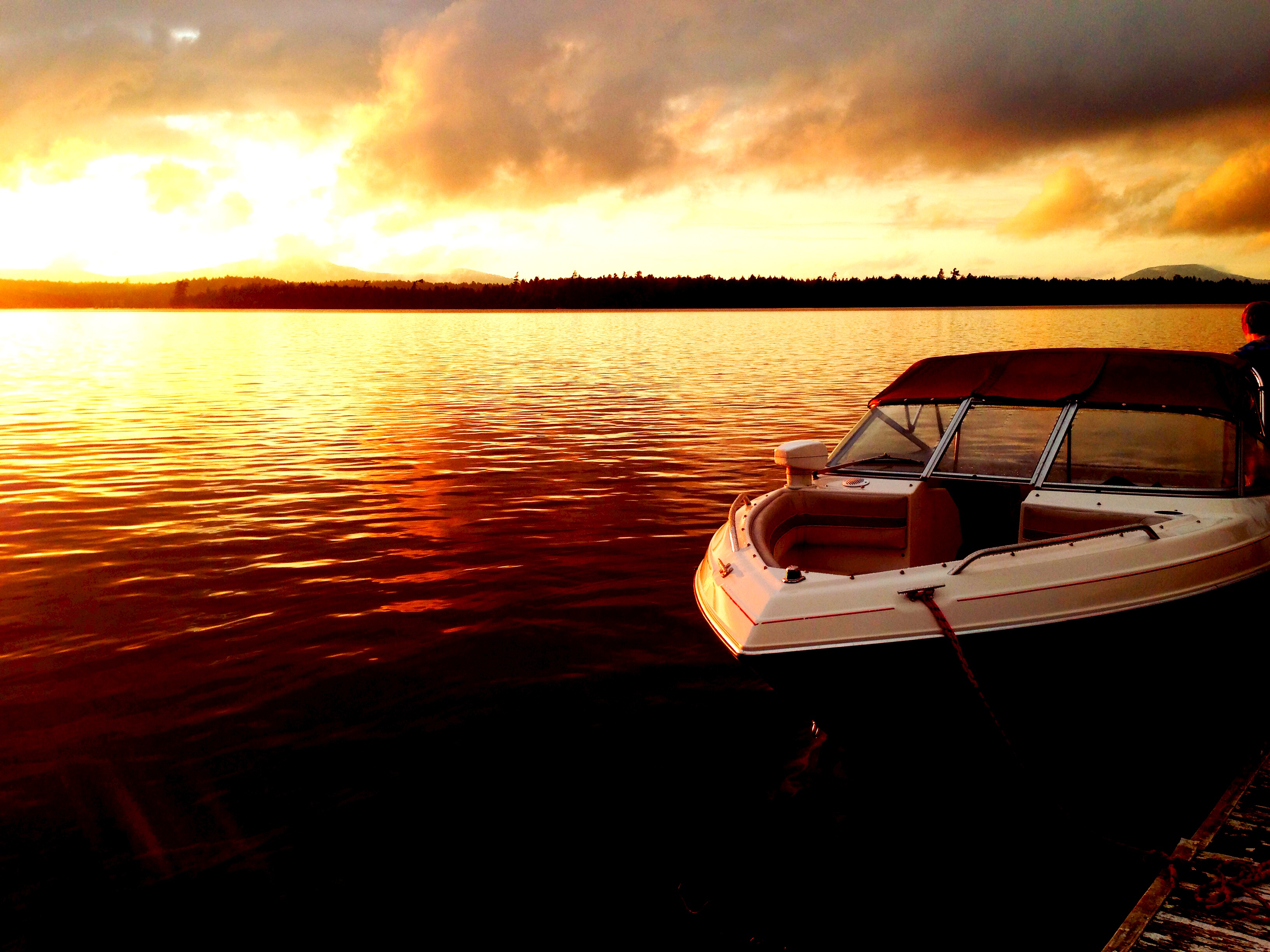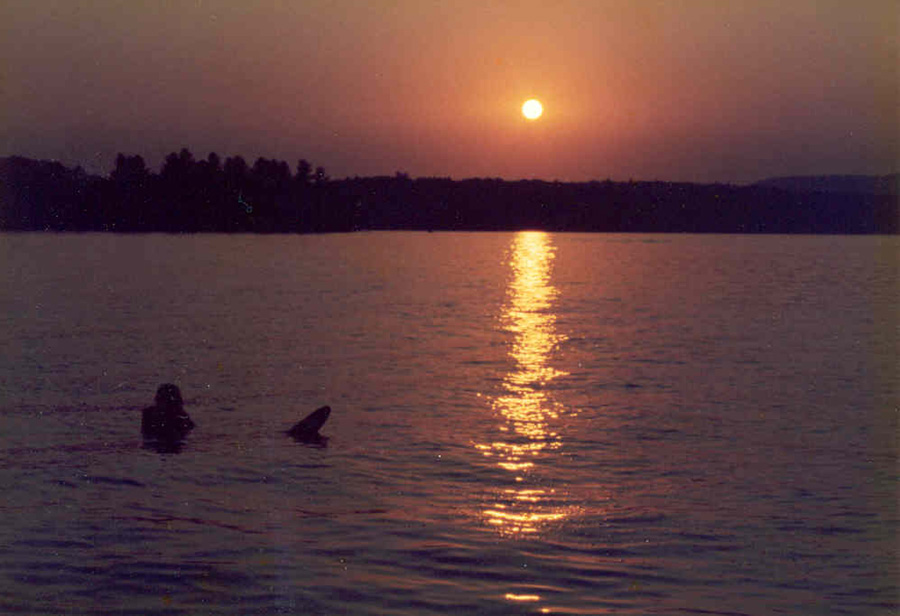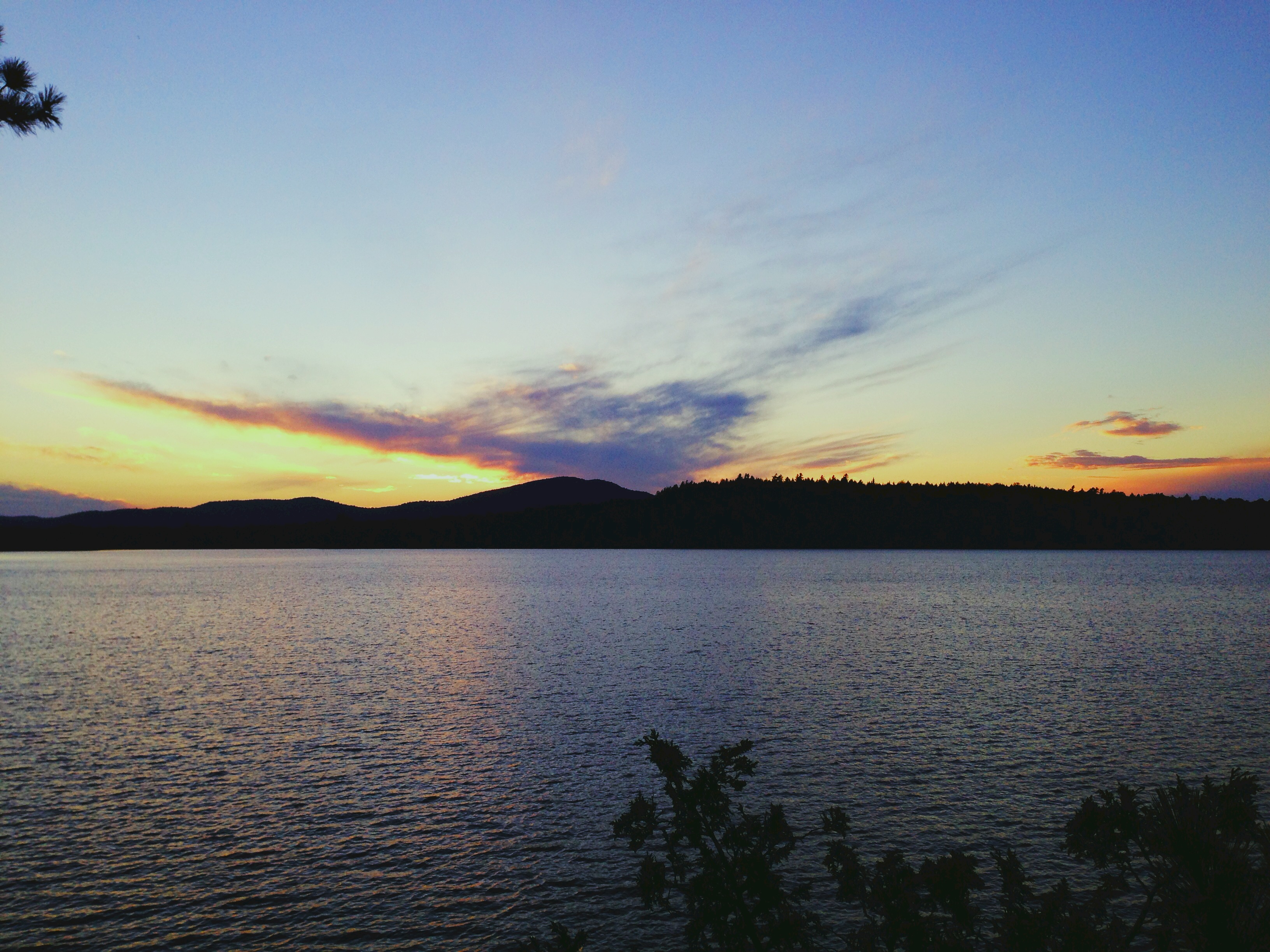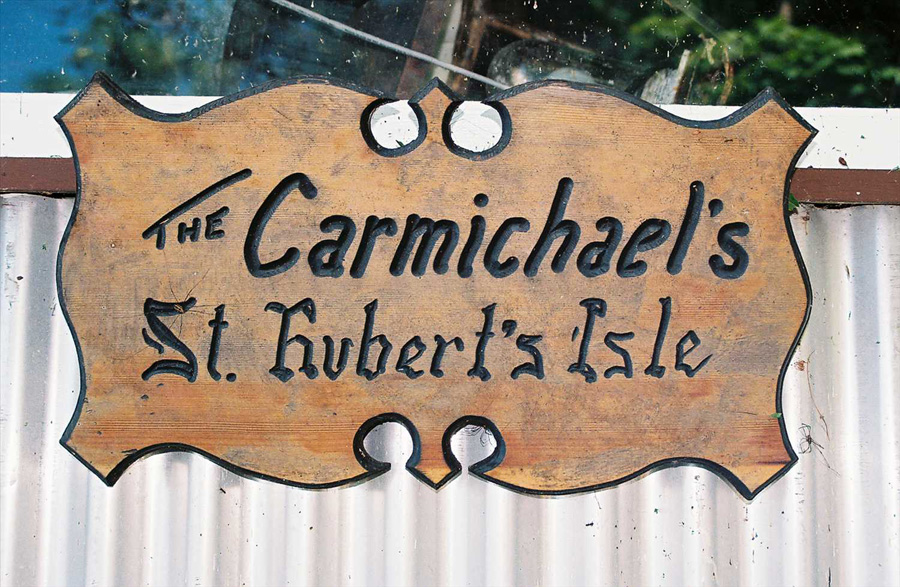1879-c1922
This 12-acre island has a long and varied history. With its abundance of natural spring water and a terrain conducive to outdoor living, it was one of the first three recorded dwellings of a white man on Raquette Lake. The others were on Indian Point and what is now Woods Point.1
Osprey was originally known as Murray’s Island, after the Rev. William “Adirondack” Murray who settled on Osprey during the summers of 1867-1869 and published a book extolling the beauty and restorative airs of the Adirondacks.2 The island also attracted the guide and hermit, Alvah Dunning (1816-1902) who took over Murray’s camps and made his home on Osprey for 10 years.
Dr. Thomas Durant had come into possession of most of the land from Blue Mountain Lake to the northern shore of Raquette. In 1879 he wanted to sell Osprey to his nephew Charles, but Alvah refused to budge. The story goes that Mrs. Thomas Durant had Alvah Dunning over to Pine Knot for tea and talked him into vacating “his” property for a certain sum.3
Dunning then settled on the southwest shore of Raquette Lake, until in 1899 he was asked to relinquish that camp for the building of the Raquette Lake Railway station where the village is today. Still seeking solitude, he soon departed for the Rocky Mountains.4
Before the first rectory on St. Hubert’s was built in 1882, the Rev. Montgomery H. Throop II was a guest of the Charles Durants at Fairview during the summer months. At one point Osprey was owned by the family of Thomas McClyman (1841-1893), paternal grandfather of Mrs. Perry Mackey of St. Andrew’s, Albany, from whom we obtained the Bierstadt photographs.
A second floor between the twin towers was added to the main building by carpenters Charles Blanchard and others, likely by Ladew.
In 1891 Charles Durant sold the island, which actually was state land, to the J. Harvey Ladew family of New York City, long-time summer residents of the area. Camp Fairview was renamed Camp Ladew. Whereupon many years of law suits followed as the state attempted to retrieve the acreage or at least the tax monies. Charles later moved to Florida where he became well-known as a philanthropist.5
Charles’ steamer, Stella , was renamed the Osprey by J. Harvey Ladew. It was stored unused in a barn on Tioga Point for almost 40 years before being trucked across the ice in 1956 to Blue Mountain Lake. It was refurbished and is now housed at the Adirondack Museum.6
The main house burned down about the summer of 1922 and the Brown-Sermans remember putting wet towels on the porch roof of the new 1918 rectory on St. Hubert’s to contain the large burning embers that blew the 700 feet across the channel.7 The smaller buildings on Osprey are now a private camp.
~~~~~~~
1 Ted Aber and Stella King, The History of Hamilton County, (Lake Pleasant, New York: Great Wilderness Books, 1965), 790.
2 William H. H. Murray, Adventures in the Wilderness; Or Camp-Life in the Adirondacks, (Boston: Fields, Osgood, & Co., 1869), 11.
3 Aber and King, 796.
4 Aber and King, 796.
5 Florida newspaper columnist in e-mail to webmaster August 2004.
6 Jim Fynmore, “Relics of 1890 Travel in the Central Adirondacks,” North Country Life, Fall 1957, 36.
7 Mary Brown-Serman Walke Kirby in phone conversation with webmaster 9 July 1998.
